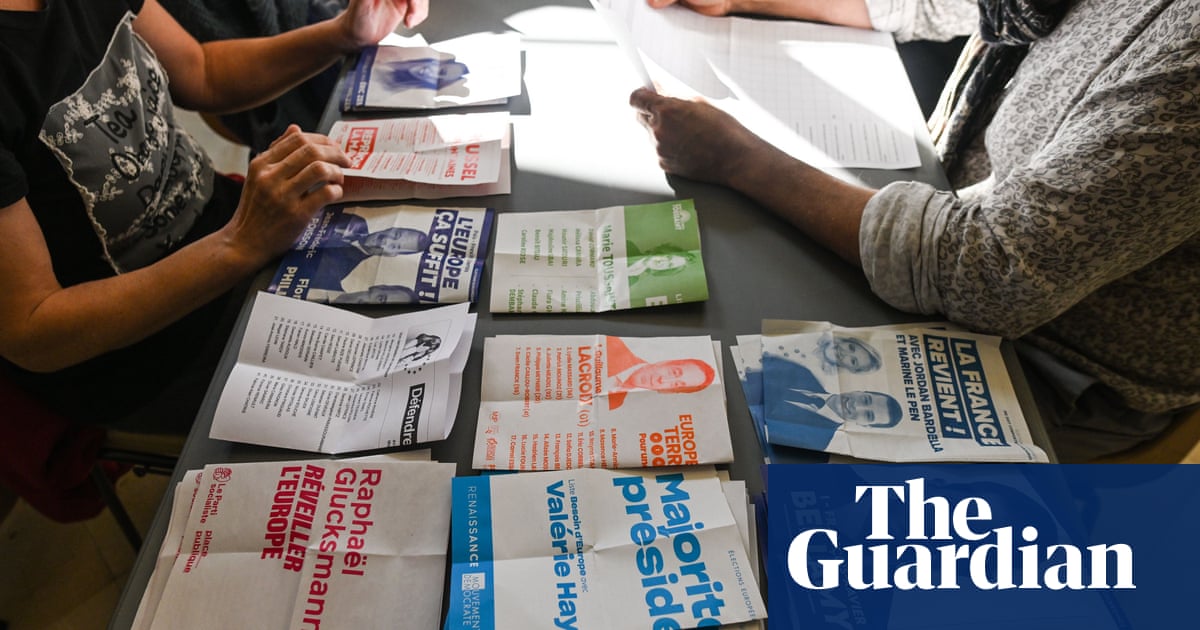- Joined
- May 15, 2022
- Messages
- 6,226
- Reaction score
- 5,941
The accounts were set up close to the election date
They appear to be Russian
They have a common network and almost immediately began following one another to boost their profiles
Primarily tatgeting France, Italy, the Netherlands and Germany the suspect accounts promoted far right activists espousing antiwestern conspiracy rhetoric/Migration
It looks like real people were behind the accounts and not only bots, including the same people making dozens of accounts each

 www.theguardian.com
www.theguardian.com
Coordinated networks of accounts spreading disinformation “flooded” social media in France, Germany and Italy before the elections to the European parliament, Dutch researchers have found.
After an in-depth analysis of disinformation on the platform X in four EU countries, the researchers concluded that many of the accounts had been set up after Russia’s invasion of Ukraine but were cranked up in the weeks and days before the vote, with growth in their numbers of followers rocketing.
“The impact of these accounts is increasing at an alarming rate,” said Trollrensics, a specialist consultancy commissioned by the Dutch Socialist and Democratic parties in the European parliament. “We can conclude with absolute certainty that a large coordinated network of accounts was influencing the EU elections in Germany, France and Italy.”
The report, titled EU Elections Investigation, said: “The scale of the operation suggests that it [the disinformation network] necessitates significant human resources and time.”
Many were created after 1 January this year and amassed a large number of followers very quickly. Nearly all the accounts followed by the researchers followed back – another red flag for coordinated activity.
“The technique is primarily used to give the account credibility as it appears more legitimate if it has a large number of followers,” the report said.
The Dutch S&D MEP Thijs Reuten who commissioned the report, said it was difficult to establish a causal link between the accounts and the EU elections results, but he had learned through the research that “the first objective was to show doubt” and discredit the authorities in the west, part of a narrative known to be pushed by Russia.
They appear to be Russian
They have a common network and almost immediately began following one another to boost their profiles
Primarily tatgeting France, Italy, the Netherlands and Germany the suspect accounts promoted far right activists espousing antiwestern conspiracy rhetoric/Migration
It looks like real people were behind the accounts and not only bots, including the same people making dozens of accounts each

Disinformation networks ‘flooded’ X before EU elections, report says
Analysis by Dutch researchers shows coordinated activity in France, Germany and Italy in run-up to ballot
Coordinated networks of accounts spreading disinformation “flooded” social media in France, Germany and Italy before the elections to the European parliament, Dutch researchers have found.
After an in-depth analysis of disinformation on the platform X in four EU countries, the researchers concluded that many of the accounts had been set up after Russia’s invasion of Ukraine but were cranked up in the weeks and days before the vote, with growth in their numbers of followers rocketing.
“The impact of these accounts is increasing at an alarming rate,” said Trollrensics, a specialist consultancy commissioned by the Dutch Socialist and Democratic parties in the European parliament. “We can conclude with absolute certainty that a large coordinated network of accounts was influencing the EU elections in Germany, France and Italy.”
The report, titled EU Elections Investigation, said: “The scale of the operation suggests that it [the disinformation network] necessitates significant human resources and time.”
Many were created after 1 January this year and amassed a large number of followers very quickly. Nearly all the accounts followed by the researchers followed back – another red flag for coordinated activity.
“The technique is primarily used to give the account credibility as it appears more legitimate if it has a large number of followers,” the report said.
The Dutch S&D MEP Thijs Reuten who commissioned the report, said it was difficult to establish a causal link between the accounts and the EU elections results, but he had learned through the research that “the first objective was to show doubt” and discredit the authorities in the west, part of a narrative known to be pushed by Russia.
Last edited:
